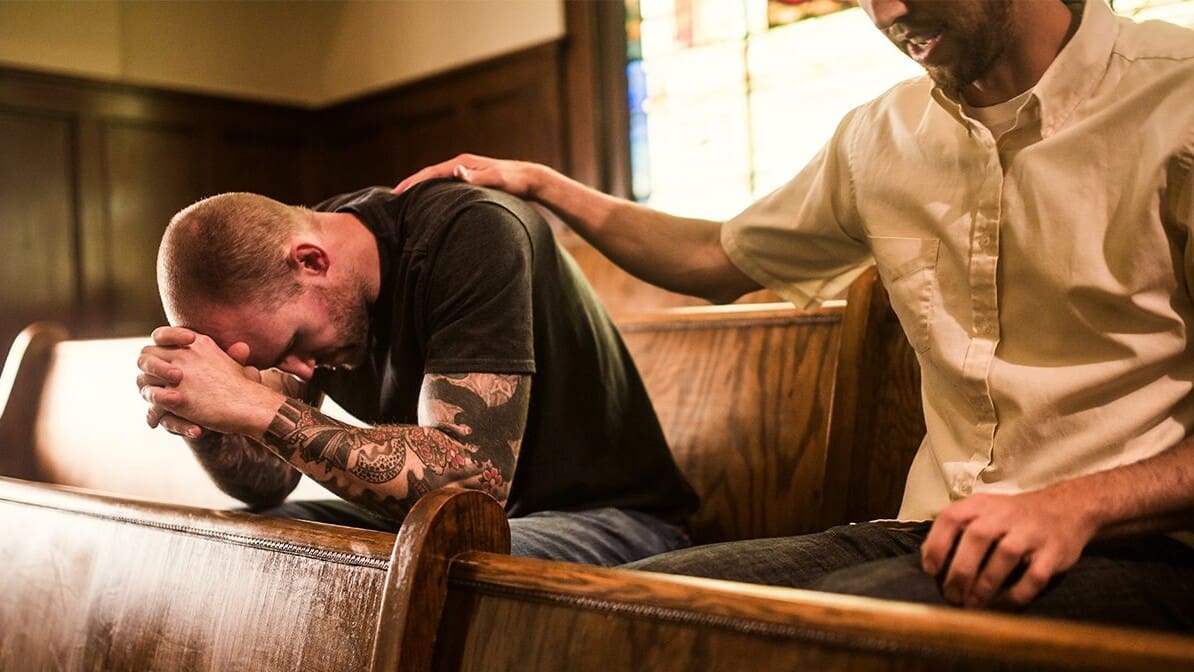- Home
- Spiritual Life
- God Wants You to Know: ‘I Welcome Repentant Hearts’

God Wants You to Know: ‘I Welcome Repentant Hearts’
— Excerpt taken from Quiet Conversation — What God Wants You to Know About Him by Kim Harvey Brannan
Excerpt taken from Quiet Conversation — What God Wants You to Know About Him by Kim Harvey Brannan
Chapter 8
I Welcome Repentant Hearts
In the Old Testament, the relationship that God had with His people was I very corporate in nature. God chose that phase of history to work with, and relate to, His people collectively rather than as individuals. As he was molding them into a spiritual nation, He brought laws, a moral code, and civil regulations for them to bring unity and instruction on how to lead upstanding lives. God desired that Israel become a blessing to all the other nations of the world.
During this time, God spoke to His people through judges, kings, priests, and prophets. These leaders occupied the highest roles in society. They were respected as the people’s representatives of God. Priests played a significant role in the worship and sacrifices offered in the temple. The Hebrews knew the history of Adam and Eve, and they understood how original sin in the Garden of Eden created an enduring barrier in humanity’s relationship with God. His people grasped that humankind inherited this propensity to sin and, along with it, they began an ongoing struggle that prevented harmony with God.
Following the original sin committed by the first man and woman, I find it interesting that one of the first actions they took was to sew loincloths to cover their shame before God. This act is interpreted by theologians as history’s first offering. This step on the part of the first couple was an effort to cover or atone for their sin and restore the fellowship they had enjoyed with God.
Hebrew people continued the tradition of making offerings to God to symbolically atone for sin for centuries. Individuals were obligated because of perpetual sin to make a sacrifice in the sanctuary by the High Priest once a year in the Holiest of Holies. This was a sacred place in the temple reserved for this special day of atonement. Each person was required to provide a substitute life in place of their own. Tradition held that individuals must choose an animal, for the law stated that blood had to be shed. God honored the choice of the purest animal, the most unblemished one owned. This symbolized the necessity of man to present hin1self as perfect and without sin before God. Therefore, once a year, the people brought their best lamb to the temple to serve as a sacrifice for the high priest to slaughter to atone for their sin.
Most important, God mandated that sacrifices be made by individuals with an honest, repentant heart. People must genuinely desire to be forgiven and made clean by God in order to receive His forgiveness. The Psalmist understood this well, “The sacrifice acceptable to God is a broken spirit; a broken and contrite heart, O God, thou will not despise.”63 Going through the motions of making an offering to God without authentic repentance rings hollow in the ears of the Lord.
The original Hebrew word which we translate in English as “repentance” is “teshuva.” It is more accurately translated and understood as “a turning.”64 The root word of this verb occurs nearly a thousand times in Scripture. In spiritual terms, teshuva means turning away from disobedience and evil and turning toward God and His goodness.
This helps me to more fully understand repentance. When I recognize my sins, it stirs regret and anguish within me. Why? Because I know that my choices and attitudes have gone against God and His ways. My thoughts are actions have hurt Him and other people. My heart mourns how my sin has broken the communion I enjoy with God. This strong sense of remorse propels me to turn my back upon my sin and turn my face toward God.
If done in earnest, this spiritual turning can fundamentally change a person’s relationship with God. When you experience authentic repentance, all manner of beliefs and habits can change with it. Your thinking becomes new and you choose to focus on more positive, life-affirming thoughts that please God. This often leads to a change of heart – you no longer desire the short- term, false sense of security that your sinful activities used to bring. Rather, you endeavor to invite God’s light into your life. You enjoy new knowledge of God’s truth and seek to remain in His presence. Your actions and activities become ne·
A friend of mine in college struggled with habitual lying. She was a Christian, and her entanglement in this sin weighed her down. She lied more to cover previous falsehoods. She fabricated stories to professors to get out of class assignments; she concocted stories to protect her reputation. After a while, she could not remember all the untruths she had conjured. The consequences of her sinful behavior became serious. She grew tired of living a life of deception. At last, she decided to repent before God and make a 180-degree turn, choosing to tell the truth from that point on. Years later, she reflected that the experience of repentance brought her a new life of freedom. Living in truth helped her draw closer to the Lord and restore many broken relationships with others. This demonstrates the transformative power of turning away from sin and turning toward God’s goodness and light.
In the mid-1600s, a group of English and Scottish theologians, known as the Westminster Assembly, met over a two-year period to craft a catechism, a comprehensive document used to teach the Christian faith to children and new adult converts. This document became known as the Westminster Catechism. It was written in a question-and-answer format and included 107 questions designed to teach the components of the Reformed Christian faith. Many Protestant churches no longer employ the Westminster Catechism; perhaps they have developed more high-tech or engaging ways to appeal to a contemporary audience. Nonetheless, I still love the succinct manner and deep truths the Catechism reveals.
My favorite question in the Catechism is its very first one. Many children of my generation raised in a reformed faith tradition will forever remember this profound truth:
Q: What is the chief end of man?
A: Man’s chief end is to glorify God and to enjoy Him forever. 65
What a lovely way to look at the purpose and meaning of all of life. This one statement explains why we are here, why God created the world, and why we long to have a relationship with Him. It is so simple: we are here to glorify God and to enjoy Him forever. Repentance is so incredibly necessary in our faith. When rebellion takes over our life, we must make the effort to rekindle our fellowship with God.
Turning away from sin and turning our heart toward God is the key to restoration. Returning to the place where we bask in God’s presence brings peace and delight to the soul. It makes life worth living. God is pleased to accept our heartfelt repentance and our heart’s desire to change.
The many offerings and sacrifices in the Old Testament paved the way for Jesus to come to Earth. As the promised Messiah, Jesus came to redeem God’s people and the world. While living as a human being for thirty-three years, Jesus led a sinless life, so that He could be a pure, unblemished sacrifice for all of humanity.
As Paul proclaims in Romans, “All have sinned and fall short of the glory of God.”66 No one is exempt. We are all sinners. According to the Levitical law of the Israelites which required animal sacrifices at the temple, the shedding of blood in death was necessary to atone for sin. The book of Hebrews explains, “Without the shedding of blood, there is no forgiveness of sin.”67 God could not grant forgiveness without atonement. His holiness and righteousness could not be compromised. His perfection and pure character could not tolerate being in the presence of the darkness and wretchedness of sin. Something had to be done to cancel the debt of sin. An offering of blood had to be paid.
Because of His great love for us, God allowed Jesus to serve as a substitute for us. He accepted the precious, sacrificial blood of Christ on the cross of Calvary to pay the penalty of our sin. The Book of Hebrews summarizes beautifully what Jesus accomplished in this great offering:
“For Christ has entered not into a sanctuary made of hands to appear in the presence of God on our behalf. Nor was it to offer Himself repeatedly, as the High Priest enters the Holy Place yearly with blood not his own. Christ has appeared once and for all to put away sin by the sacrifice of Himself.” 68
In this selfless act, Jesus became the new lamb – his blood was the ultimate sacrifice to pay for all of humanity’s debt to sin. While he was being crucified and hanging on the cross, I imagine that Jesus remembered the haunting words spoken to Him by his cousin John the Baptist, “Behold the lamb of God, who takes away the sin of the world.”69 Perhaps Jesus recalled images of people in long lines in front of the temple, trying to keep their lambs still on their shoulders as they waited to present to the priest the best of their flock as a sacrifice.
The sins which Jesus died for were not His own. They were all the malicious, evil, hurtful thoughts, words, and deeds committed from the beginning of time. The sins Jesus died for were the missed opportunities to lift others up and help those in need. The blood Jesus shed was for the loving acts never performed to spread God’s goodness. His body was given for all the moments we choose to remain silent rather than defend an innocent person or share encouraging words with the forlorn.
Before I partake in Holy Communion, I thank God that if I had been the only person in the whole world at the time, Jesus would have died just for me. His blood was freely given in love for the forgiveness of my sin and your sin. Our forgiveness cost him his life. Our salvation was bought with a precious price.
What does God want you to know about Him? That He welcomes repentant hearts. His love and grace respond in forgiveness, and our relationship is immediately restored. Fellowship with God is the sweetest you will ever know.
64 Strong, James. The New Strong’s Guide to Bible Words: An English Index to Hebrew and Greek Words, Nashville, TN: Thomas Nelson Inc., 2008.
65 The Westminster Shorter Catechism, UnahriJgeJ Start Publishing LLC, November 2012
66 Romans 3:23
67 Hebrews 9:22
68 Hebrews 9:24-26, selected verses
69 John 1:29
…
Order your copy of Quiet Conversation — What God Wants You to Know About Him by Kim Harvey Brannan.
Trending Now
Sign up today for your Inspiration Today Daily Newsletter
Supercharge your faith and ignite your spirit. Find hope in God’s word. Receive your Inspiration Today newsletter now!
Kim Harvey Brannan
Kim Harvey Brannan has created and taught Bible studies for over 35 years. She received a degree in journalism from the University of Florida and spent her career in marketing, public relations, and advertising. For the past 15 years, she has served on the Board of Directors for a local Early Childhood Education program to meet the needs of underserved neighborhoods and families. She was married nearly 33 years to John Brannan who died from Acute Myeloid Leukemia. She was born and raised in Tampa, Florida where she still resides, and has three grown children. Learn more at: kimharveybrannan.com
Related Articles
March 1, 2026
Chased by God’s Blessings—How to Attract God’s Blessings and Walk in His Favor
The key to God’s amazing turnaround plan for you to walk in His favor in every area of life. Have…
February 27, 2026
Friendship with Jesus: Finding Joy in the Creator
True joy begins when we know Jesus not only as Savior, but as Creator—and learn to walk with Him in…
February 25, 2026
Finish Strong with a Kingdom Mindset
For if you keep silent at this time, relief and deliverance will rise for the Jews from another…
February 23, 2026
The Joy of Being His Workmanship
When life urges us to strive harder and do more, Scripture invites us to rest in a freeing truth:…
Next Steps To Strengthen Your Walk
Inspiration Today Newsletter
Supercharge your faith and ignite your spirit. Find hope in God’s word. Receive your Inspiration Today newsletter now!
Christian Articles
Find articles to strengthen your walk and grow your faith. We have a wide range of topics and authors for you.
Submit A Prayer Request
We are here for you. Simply click on the button below to reach us by form, email or phone. Together we will lift our hearts and voices with you in prayer.





